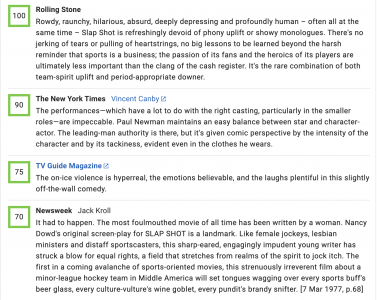I got my Connecticut plates last October. (Or was it early November?). I told myself I’d put them on in a day or two. It takes two or three minutes but for various strange, complex reasons I kept putting it off. I finally put them on today.

I got my Connecticut plates last October. (Or was it early November?). I told myself I’d put them on in a day or two. It takes two or three minutes but for various strange, complex reasons I kept putting it off. I finally put them on today.

I don’t know about seeing Paul Weitz‘s Moving On (Roadside, 3.17). A white-haired Jane Fonda telling white-haired wife abuser Malcolm McDowell that she intends to kill him is a silly contrivance. Where’s the upside or the intelligence in offering a warning? Unless, of course, Fonda is only looking to frighten.
I’ll tell you what’s frightening — the difference between present-tense McDowell and the way he looked in Lindsay Anderson‘s If… (’68).
At least I’m now thinking of re-watching Martin Brest‘s Going in Style (’79), which wasn’t half bad. (Or was it?) At the very end of the trailer George Burns says about a chubby kid, “If he eats any more jelly donuts they’re going to have to take him to kindergarten in a moving van.” One, that’s fat-shaming. Two, maybe the kid grows up to be Vincent D’Onofrio‘s Private Pyle from Full Metal Jacket (’87)?
Last night the London Film Critics Circle, whose choices have often reflected where things are generally heading, didn’t tumble for Everything Everywhere All At Once…sometimes there’s God so quickly!
Todd Field‘s Tar won their Best Film and Best Director award. The Best Actor and Best Actress awards went to The Banshees of Inisherin‘s Colin Farrell and Tar‘s Cate Blanchett, and the Best Supporting and Actress trophies went to Banshees‘ Barry Keoghan and Kerry Condon.
I’m not saying this means a whole lot but obviously it means something, given the London Critics Circle track record and the fact their choices have always been smart. Over the last ten years their Best Film awards have gone to Amour, 12 Years a Slave, Boyhood, Mad Max: Fury Road, La La Land, Three Billboards Outside Ebbing, Missouri, Roma, Parasite, Nomadland and The Power of the Dog. They vote smarter than the Academy, but not too far afield.
They built and labored and created alongside dozens of tribes and cultures, and they certainly weren’t the only ones who suffered grievously as this country gradually developed and bloomed and grew into itself…a nation of primarily European-descended immigrants (even today) and a conflicted multicultural stew.
Two and a half years ago (7.30.20) I posted a loose-shoe retort to the 1619 Project, which attempted to (a) define the U.S. of A. as an empire built upon slavery and (b) to define 1619 (when the first slaves arrived in Virginia) as this country’s primal defining event rather than the signing of the Declaration of Independence in 1776.
In the wake of Disney’s The Proud Family: Louder and Prouder, which at least partly seeks to indoctrinate 5 to 7 year-olds into the theology of anti-white racism and the basically racist idea that whites are inherently evil, and with the understanding that anti-racism essentially advocates for the furtherance of more racism (i.e., defining ourselves primarily by race and the huddling of separate tribes, pride within those tribes, white against black, etc.) and with the Proud Family chant of “slaves built this country,” I’m reposting “What’s Your 1619 Beef?”
“Slavery has always been an ignominious chapter in the first 245 years of US history (1619 to 1865) and racism has stained aspects of the culture ever since, but to assert that slavery and racism (which other cultures have shamefully allowed over the centuries) are THE central and fundamental definers of the immense American experience strikes many of us as a bridge too far.
“Many factors drove the expansion and gradual strengthening and shaping of this country, and particularly the spirit and character of it…here are 40 for starters, posted in groups of 10:
1. Immigration. 2. The industrial revolution and the cruel exploitations of sweat-shop workers by wealthy elites; 3. The delusion of religion; 4. Anti-Native American racism and genocide; 5. the American Revolutionary War against the British; 6. The mid 19th Century influence of Abraham Lincoln, Frederick C. Douglas, John Brown and Harriet Beecher Stowe; 6. The vast networks of railroads; 7. Selfishness & self-interest; 8. Factories and construction; 9. The two world wars of the 20th Century; 10. Scientific innovation.
11. Native musical forms including jazz, blues (obviously African-American art forms) folk and rock; 12. American literature; 13. The influence of New York theatre and Hollywood movies; 14. 20th and 19th Century urban architecture; 15. The influence of Frank Lloyd Wright and Frank Gehry; 16. Major-league baseball (Babe Ruth, Lou Gehrig, Hank Aaron, Stan Musial, Mickey Mantle, Yogi Berra, Roger Maris); 17. Family-based communities and the Protestant work ethic; 18. Fashion and the garment industry; 19. Midwestern farming and individual gardening; 20. Native cuisine and the influences of European, Mexican, Asian and African cultures, not to mention hot dogs with mustard.
21. The shipping industry; 22. Hard work and innovation in all industries great and small; 23. John Steinbeck, George Gershwin, Paul Robeson, Louis Armstrong, JFK, MLK, Stanley Kubrick, Chet Baker, John Coltrane, Marilyn Monroe, Amelia Earhart, Malcom X, Taylor Swift, Charlie Parker, Elizabeth Warren, Woody Guthrie, Katharine Hepburn, Aretha Franklin, Jean Arthur, Eleanor Roosevelt, Carol Lombard, Shirley Chisholm, Marlon Brando, Woody Allen; 24. Barber shops; 25. Manual lawnmowers; 26. The auto industry; 27. Prohibition & gangsters; 28. The Great Depression and the anti-Communism and anti-Socialism that eventually sprang from that; 29. Status-quo-challenging comedians like Richard Pryor, Lenny Bruce and Steve Allen (“schmock schmock!”), 30. Popular music of the ’50s, ’60s and ‘70s (Chuck Berry, Little Richard, Elvis Presley, Frank Sinatra, Beatles and Rolling Stones, Queen).
31. Television, cable and streaming; 32. Great American universities; 33. Great historians; 34. Great journalism (including the National Lampoon and Spy magazine); 35. Great poetry; 36. Beats, hippies and post-Stonewall gay culture; 37. The anti-Vietnam War movement; 38. Pot and psychedelia, cocaine, quaaludes; 39. The late ’70s splendor of Studio 54; 40. 20th & 21st Century tech innovations (Steve Jobs).
This is called “barely scratching the surface.”
[Starting at 4:20] “And if you think for one second that Indiana Jones 5 (Disney, 6.30) is gonna put Lucasfilm back on top, all I can say is ‘well, bless your heart, you sweet summer child!’ Nobody, and I mean nobody in the entire universe, wants to see a geriatric Indiana Jones get humiliated and replaced by a goofy British comedy actress whose claim to fame [within the realm of popcorn franchises] is voicing an insufferable droid in a failed Star Wars movie.
In my book Phoebe Waller-Bridge‘s claim to fame was (a) creating Fleabag and (b) having helped punch up the screenplay of No Time To Die.
In Indy 5 Waller-Bridge plays Helena Shaw, Indiana Jones’ goddaughter and the reported catalyst of the film, dragging Grandaddy Indy / Uncle Festus into situational difficulties that she ignited or is otherwise responsible for.
Basic CD thesis: Over the last few years the once family-friendly, entertainment-for-entertainment’s-sake Disney has been fucking up franchises and swallowing wokester pills (i.e., vigorous injections of gay and trans-friendly content, attempting to feed young children with white-people-bad content. The resulting lack of popularity among Average Joes has led to Disney share prices dropping almost 50% over the last two years — “from an all-time high of $200 a share in early ’21 to just $110 per share now.” Go woke = go broke.
I’m posting this to remind HE’s The Last Of Us fans that there are many, many “meh” responders like me out there, and that a good percentage of us regard the idea of watching a 50ish bear get an offscreen blowjob from a slender, gray-haired 50ish bear with acute discomfort, to put it mildly.
Response to “Sylvain BL”: You’ve said that judging a limited series after watching three episodes is like judging a feature film after watching just 15 minutes’ worth. Well, let me tell you something: If a film is working and grooving and doing it right, I don’t need 15 minutes to comprehend this. I can tell this almost immediately, and certainly within 5 minutes.
Ask anyone who’s done script-reading for an agency or production company — a smart reader can spot a stinker within three or four pages. And if a script is going to be good, you’ll also know it almost immediately. It’s also known, of course, that well-written scripts can go off the rails in the second or third acts, which is why script-readers are unfortunately obliged to read scripts all the way through. But 98% or 99% of the time, if a script blows during the first five pages, it’ll never recover. And if a limited series doesn’t seem to be doing it quite right during the first three episodes, the odds of the series pulling a rabbit out of a hat starting with episode #4 or #5 are very low.
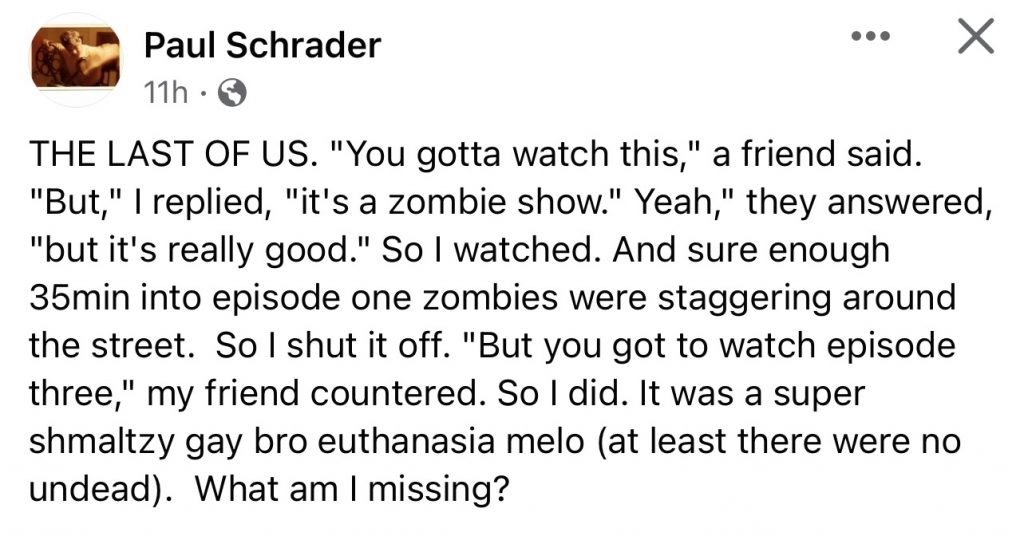

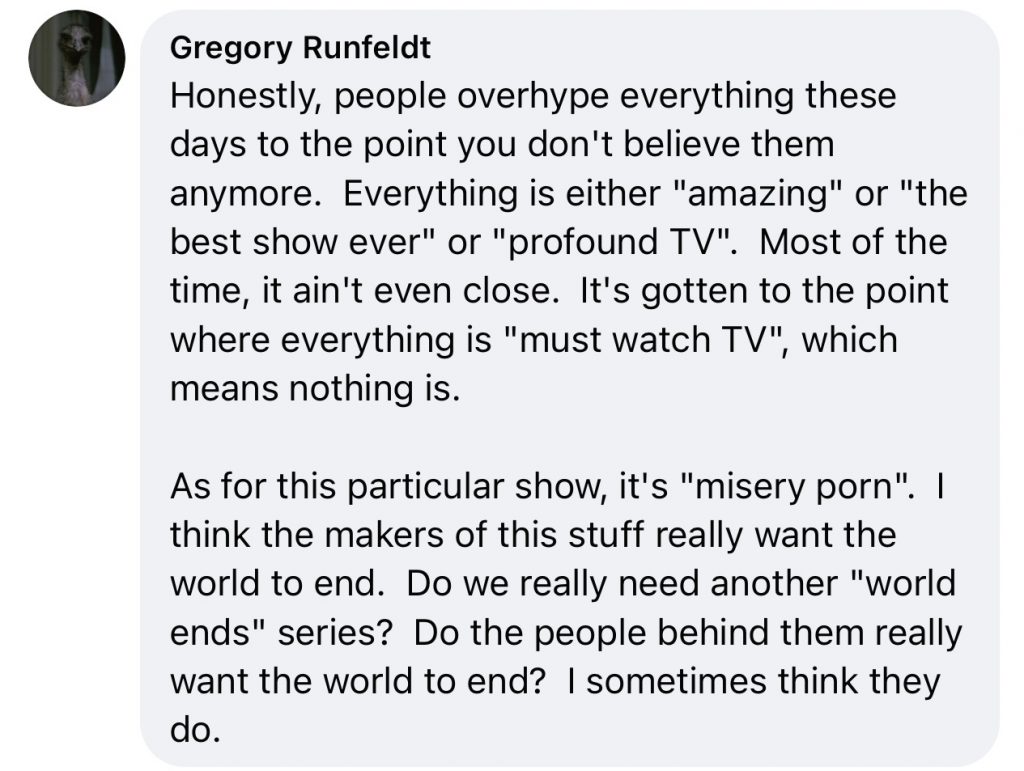
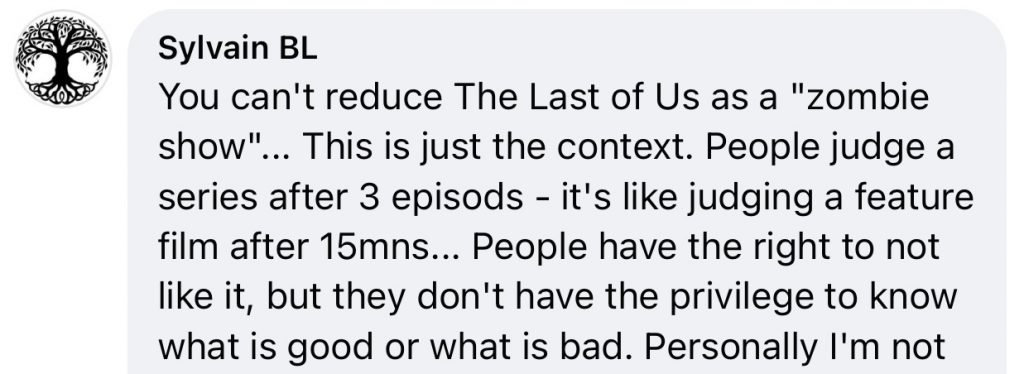
Inner Affleck to himself: “I hate this but I have to do it…Jesus, man up! Pretend that you’re having a half-decent time. Do you want to become the latest misery meme? Remember that Simon & Garfunkel thing?”
Everyone else: “That‘s pretending? You’re telling the whole world what you’re going through, bruh. You look miserable.”
@gabriellemassari #benafflecks pained facial expressions at #thegrammys ♬ Funny Song – Cavendish Music
Profuse apologies for my not posting our latest Substack chat earlier today, but don’t let that stop you.

That’s all I’m getting from this feckin’ ad…”Look at us! We’re living the high life! In a bubble!”
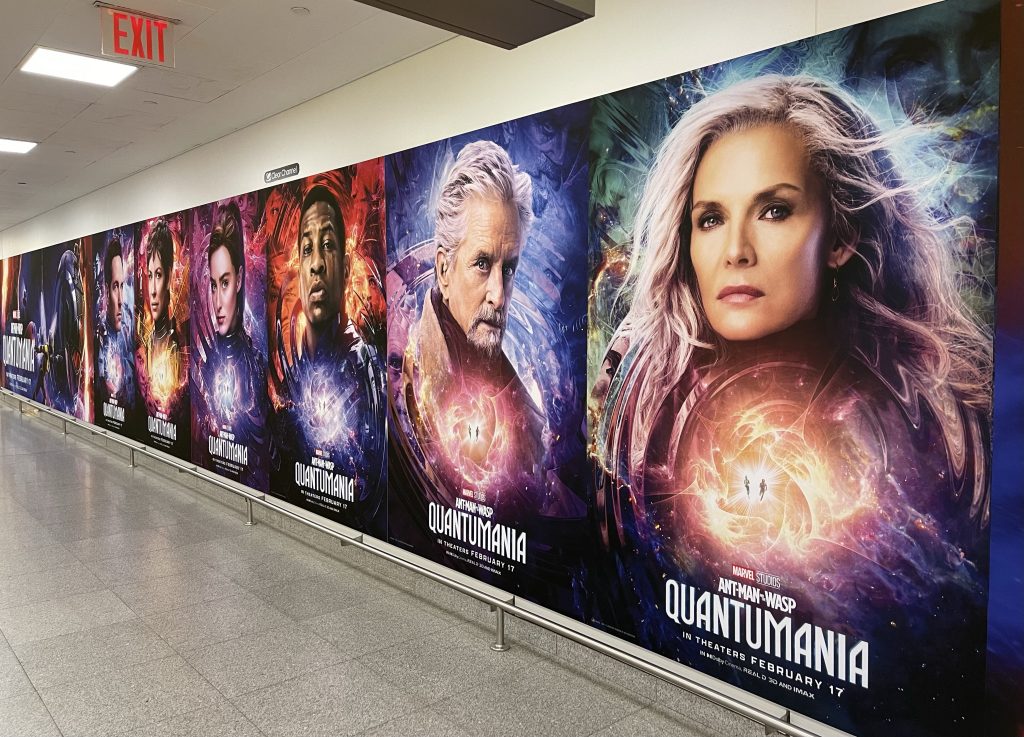
George Roy Hill‘s Slap Shot (’77) has gotten better with each successive re-viewing. Nancy Dowd‘s screenplay is based on her brother Ned’s rough-and-tumble experience with the Johnstown Jets, a minor-league Pennsylvania hockey team. And yes, in the early to mid ’70s violence was a serious selling point with the low-rent fans.
But the film doesn’t feel “realistic”…not really or fully. It may take a while during your first viewing, but it gradually hits you that Slap Shot is a brilliantly sustained farce — partly a satire of crude, working-class lifestyles and sensibilities, and partly a kind of valentine to same.
Assembled and finessed to a fare-thee-well (dp Victor Kemper and editor Dede Allen are a dynamic duo), it’s a blend of grim blue-collar realism and coarse slapstick. The characters are all trapped in a kind of blue-collar, no-exit hellscape, but only a couple of them (the married malcontents played by Michael Ontkean and Lindsay Crouse) succumb to anything close to lethargy. Everyone else is indefatigable.
And the violence is hilarious. Damn near every line is about making fun of these yokels, and yet Hill and Dowd clearly love them. It’s almost spooky how intoxicating it all is. Except, that is, for the climactic striptease-on-the-ice scene, which I’ve never believed.
